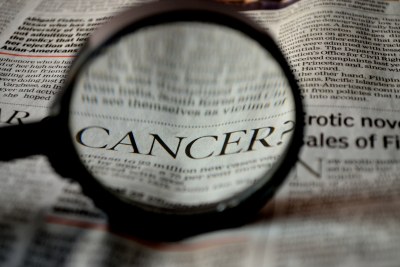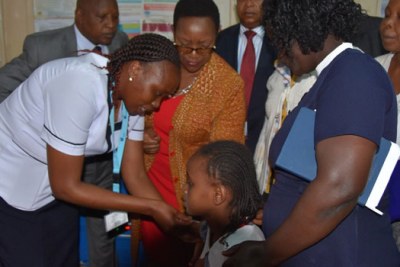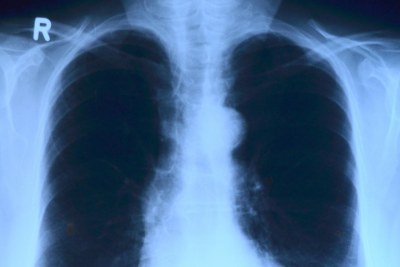-
Africa: Breast Cancer in Africa - a Growing Dilemma
DW, 18 October 2021
As the world marks Breast Cancer Awareness Month, we examine the rising rates of breast cancer in Nigeria, Uganda and Malawi. Lifesaving information is often scarce and many… Read more »
-
Namibia: Live With Confidence Even in the Face of Breast Cancer
Namibia Economist, 8 October 2021
There were an estimated 19.3 million new cases of cancer in 2020 globally. That amounts to 2200 per hour, 37 per min and about 1 every 2 seconds. Depending on how fast you read, by… Read more »
-
Namibia: Monthly Breast Exams a Necessity
New Era, 14 October 2021
It is Breast Cancer Awareness Month. Do your breast exam monthly, yourself. Find out from your parents if any of your close relatives had breast cancer, and if they had, make sure… Read more »
-
Tunisia: Breast Cancer Screening - Tunisian Women Becoming More Aware
Tunis Afrique Presse, 4 October 2021
"A surge in the number of women screened for breast cancer during or outside cancer awareness days has been reported for the past 5 years," said Head of the National Anti-cancer… Read more »
-
South Africa: Breast Cancer Awareness Month - Black Women in Rural Areas Are Still On the Margins of Life-Saving Messages
Daily Maverick, 22 October 2020
Black women in rural areas struggle to receive and understand potentially life-saving messages about breast cancer. Accessibility remains an enormous challenge when it comes to… Read more »
Breast Cancer in Africa - a Growing Dilemma
As the world marks Breast Cancer Awareness Month, Deutsche Welle examines the rising rates of breast cancer in Nigeria, Uganda and Malawi. Lifesaving information is often scarce and many patients lack access to adequate treatment.
Thousands of people took to the streets of Abuja on October 16, 2021 to march against breast cancer. The event, dubbed #WalkAwayCancer, was organized by the Medicaid Cancer Foundation (MCF), one of several NGOs in Nigeria which works to raise awareness of the disease.
Breast cancer is currently the most common type of cancer worldwide, according to the World Health Organization (WHO). In 2020, 2.26 million cases were recorded.
Although the incidence of breast cancer remains higher in developed countries, the incidence is also increasing in developing countries, including many African states, like Nigeria.
While breast cancer cases were historically low in the West African country, they are now increasing, representing about 23% of all cancer cases.
One of the biggest boundaries towards breast cancer detection and treatment in Nigeria is the lack of information of risk factors and symptoms of the disease. Those who are aware may be hesitant to seek treatment due to the high costs involved or socio-cultural factors.
In Uganda, breast cancer is the second most common type of cancer among women after cervical cancer. There has been a push in recent years to increase awareness of the disease, however according to the Uganda Women's Cancer Support Organization (UWOCASO), more than 75% of breast cancer patients in the region first present at a late stage.
Breast cancer rates are also on the rise in Malawi. However, the country has only one treatment center in Kamuzu Central Hospital in the capital, Lilongwe, writes Ineke Mules for Deutsche Welle.
InFocus
-
Hundreds of cancer patients have missed out on treatment for at least two weeks after an April 2021 fire shut down oncology services at Charlotte Maxeke Academic Hospital in the ... Read more »
-
According to a 2019 Human Papillomavirus and Related Diseases report, 5,250 new cervical cancer cases are diagnosed annually in Kenya. It is also the first and most common female ... Read more »
-
The World Health Organisation has said that radon, an odourless, colourless radioactive gas with many isotopes, is responsible for most lung cancer cases among non-smokers. Read more »
-
Non-communicable diseases claim the most lives worldwide, and the impact across Africa is growing, as cancer, heart problems and diabetes spread. Experts attending the ... Read more »
-
As the world commemorates World Cancer Day, Gershim Asiki for The Conversation has revealed that excessive drinking, smoking, lack of exercise, poor diet, obesity and exposure to ... Read more »





